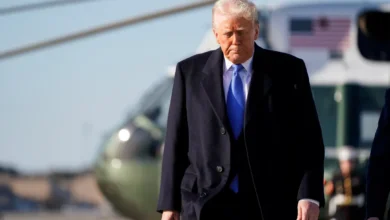Remote Work Is Over—Musk Cracks The Whip On Federal Employees
Elon Musk enforces Trump’s executive order, threatening remote federal workers with administrative leave. Will legal battles overturn the directive?

Billionaire entrepreneur and advisor to U.S. President Donald Trump, Elon Musk, has issued a stern order to federal workers: get back to the office or face administrative leave. The order has generated broad controversy about office policies, labour protections, and the future of telecommuting in the U.S. government.
The mandate follows the President’s signing of an executive order early on after he came into office, effectively eliminating work-from-home allowances for federal employees. The administration’s decision is premised on the notion that remote working promotes inefficiency, something that has faced opposition from federal employees and trade unions.
Elon Musk’s Direct Warning
On Monday, Elon Musk took to his social media platform, X (formerly Twitter), to reinforce Trump’s directive. He stated that government employees who had ignored the executive order to return to the office have now received ample warning and must comply immediately.
“Those who ignored President Trump’s executive order to return to work have now received over a month’s warning,” Musk wrote. “Starting this week, those who still fail to return to office will be placed on administrative leave.”
This warning comes after an email was sent to thousands of federal workers requiring them to provide reports of five achievements over the last week. The submission deadline was 11:59 p.m. EST on Monday. Musk threatened termination of employment if they did not comply.
Lawsuit Challenges the Legality of Musk’s Directive
Federal workers and unions have opposed Musk’s directive, filing a complaint that accuses him of crossing the legal line. The complaint, which was made by several entities such as unions, companies, veterans, and conservation organizations, contends that Musk’s request breaks established federal labour regulations.
“No OPM rule, regulation, policy, or program has ever, in United States history, purported to require all federal workers to submit reports to OPM,” the lawsuit states. It goes on to describe the mass firing threat as “one of the most massive employment frauds in the history of this country.”
Legal commentators have addressed the issue, saying that the executive branch indeed has authority over federal workplace policy but instituting such a hasty change may generate a tremendous amount of backlash and logistical problems.
Trump’s Stand Against Remote Work
President Trump has also been a long-time vocal opponent of telework, particularly by federal workers. When he assumed office on January 20, he signed several executive orders, one of which directed the cessation of telework plans for government workers.
As part of the directive, department and agency leaders were tasked with creating an implementation plan by February 7 to allow for a complete return to in-office work. The decision is a drastic departure from policies used during the COVID-19 pandemic, where telework became the new standard for many federal workers.
:max_bytes(150000):strip_icc()/GettyImages-1369954837-c20e50f4994d43309e9cbe5820573b07.jpg)
Trump has repeatedly criticized remote work, arguing that it leads to lower productivity. He said earlier this month that “nobody is going to work from home,” as reported by the Associated Press.
“They are gonna be going out; they’re gonna play tennis, they’re gonna play golf, they’re gonna do a lot of things. They’re not working.”
Federal Workforce Resistance and Potential Impact
The federal workforce has extended remote work and telework arrangements, most of which existed before the COVID-19 pandemic. The transition to remote work during the pandemic was generally regarded as a success, resulting in higher efficiency in several industries while lowering operations costs.
Nonetheless, most employees are already being pushed to weigh the benefits of telecommuting against the trade-offs of convenience and job security. Others have expressed grievances regarding the sudden return-to-office order due to health effects, work-life balance, and transportation expenses.
Federal workers’ unions have vowed to battle the mandate, and some have suggested exploring strikes or further litigation. They contend the government must offer greater flexibility and consider hybrid work patterns instead of mandating a strict office return.
Implications for Workplace Policies Nationwide
The federal government’s position regarding remote work potentially has a broad impact outside of Washington, D.C. Private enterprise tends to base its in-office policies on what the government does. Trump and Musk’s bull rush through a tough return to the office for the federal bureaucracy establishes a precedent that can ripple across industries in terms of affecting company policies.
Alternatively, in case the resistance by federal unions and employees calls for legal recourse to reverse the mandate, it would solidify the legitimacy of telecommuting and prompt other employers to preserve remote work practices.
Conclusion
Elon Musk’s strict enforcement of the return-to-office mandate has deepened the controversy over workplace flexibility and state control. While the Trump administration views this mandate as a means to improve productivity and accountability, federal workers and their advocates see it as an unnecessary and legally questionable overreach.
The next few weeks will be pivotal in deciding the fate of telework within the federal government. With court cases launched and pushback building, it is unclear if Musk and Trump can push through their vision or if worker pushback will precipitate policy changes.
As this controversy unfolds, the broader discussion around work-from-home policies will continue to shape labour dynamics in both the public and private sectors. Whether this marks the beginning of a more significant trend or an isolated policy shift will depend mainly on the legal battles and political responses in the months ahead.




